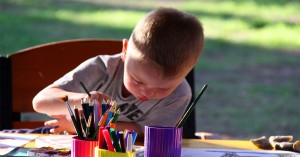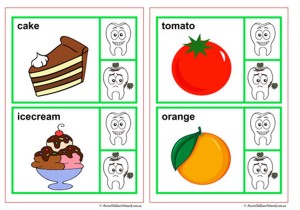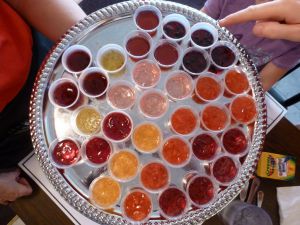Fine motor skills involve the small muscles in the hands, fingers, and wrists. The following article lists 50 Fine Motor Skills Activities for Toddlers and Preschoolers, Benefits Of Developing Fine Motor Skills, Why Are Fine Motor Skills Important and more.
50 Fine Motor Skills Activities
-
Play Dough: Squishing, rolling, and molding play dough helps strengthen those little muscles.
-
Finger Painting: Besides being fun and messy, this activity enhances their finger and hand strength.
-
Stringing Beads: Use large beads and a string to improve hand-eye coordination.
-
Building Blocks: Stacking and balancing blocks boost dexterity and hand control.
-
Cutting with Safety Scissors: Provide supervised cutting activities using child-safe scissors.
-
Puzzles: Choosing puzzles with large pieces can help refine grasping and positioning skills.
-
Buttoning and Zipping: Clothes with buttons and zippers allow practice with real-life skills.
-
Sponge Play: Squeezing water out of sponges during bath time can strengthen hand muscles.
-
Threading Pasta: Use a string and some pasta with holes to create pasta necklaces.
-
Tearing Paper: Let them tear old newspapers or magazines to improve their finger strength.
-
Sticker Play: Peeling and placing stickers can refine pincer grip.
-
Drawing with Crayons: Encourage doodling and coloring for hand strength.
-
Scooping and Pouring: Use cups and spoons with dry beans or rice to improve coordination.
-
Lacing Cards: Use shoelaces or yarn to thread through holes in cards.
-
Tweezers and Pom-Poms: Let them use tweezers to pick up small pom-poms and transfer them to a container.
-
Sensory Bins: Fill bins with various textures (like rice, beans, or sand) and let them explore.
-
Clothespin Pinching: Pinch and place clothespins on the edge of a container to strengthen fingers.
-
Button Sorting: Sort buttons by size, color, or shape to enhance fine motor precision.
-
Cooking Activities: Simple tasks like stirring, kneading dough, or spreading butter on bread.
-
Magic Painting: Use water to "paint" on special paper or on sidewalks. No mess, but lots of fun!
-
Threading Cheerios: Use pipe cleaners and Cheerios to create edible jewelry.
-
Painting with Q-tips: Use cotton swabs for detailed painting.
-
Pom-Pom Races: Use straws to blow pom-poms across the table.
-
Egg Carton Sorting: Sort small items like beans or buttons into egg carton sections.
-
Sponge Painting: Cut sponges into shapes and let them stamp away.
-
Sand Writing: Write and draw in a tray filled with sand or salt.
-
Play with Squirt Bottles: Fill squirt bottles with water and let them “water” outdoor plants or just have fun.
-
Velcro Dots: Stick Velcro dots on objects and let them match and stick them together.
-
Clapping Games: Simple clapping patterns can help with coordination.
-
Ice Cube Painting: Freeze colored water in ice cube trays and let them paint with the melting cubes.
-
Handy Helper: Let them help with simple household tasks like stirring batter, squeezing out a dish sponge, or wiping tables.
-
Water Play: Use a turkey baster or small water droppers to transfer water between containers.
-
Marble Painting: Put a sheet of paper in a shallow box, dip marbles in paint, and roll them around.
-
Finger Puppets: Play with finger puppets, encouraging storytelling and finger movements.
-
Nature Collage: Collect leaves, sticks, and flowers and make a collage using glue.
-
Chalk Drawing: Draw on sidewalks or chalkboards.
-
Sensory Bottles: Fill bottles with various objects like rice, beads, or glitter and let them shake and explore.
-
Rice Pouring: Use cups to pour rice or small grains back and forth.
-
Magic Wand Play: Use a wand or stick to trace shapes in the air.
-
Yarn Wrapping: Wrap yarn around objects like cardboard shapes or tubes.
-
Golf Tee Hammering: Use a small wooden mallet or hammer to tap golf tees into a foam block.
-
Pipe Cleaner Crafts: Bend and twist pipe cleaners into shapes and figures.
-
Button Art: Create pictures by gluing buttons onto paper.
-
Sorting Small Toys: Use tweezers or fingers to sort small toys like LEGO pieces or miniature animals.
-
Basting Tool Fun: Use a basting tool to transfer water between containers.
-
Paper Hole Punching: Let them punch holes in paper using a handheld hole puncher.
-
Washing Toys: Provide a basin of soapy water and let them wash their plastic toys.
-
Tweezer Transfer: Use tweezers to move small items from one container to another.
-
Felt Board Play: Use a felt board and felt shapes to create scenes and stories.
-
Stitching Cards: Use a plastic needle and thread to practice stitching through pre-punched holes in cards.
Benefits Of Developing Fine Motor Skills
-
Hand-Eye Coordination: The ability to use our eyes to guide our hands in movements.
-
Dexterity: Skill in performing tasks with the hands, especially tasks that involve small objects.
-
Grip Strength: The force applied by the hand to hold onto something.
-
Finger Isolation: The ability to move individual fingers independently.
-
In-Hand Manipulation: The ability to move objects around in the hand without using the other hand.
Examples of activities that use fine motor skills include:
-
Writing or drawing
-
Buttoning a shirt
-
Cutting with scissors
-
Using utensils to eat
-
Turning pages in a book
-
Typing on a keyboard
Why Are Fine Motor Skills Important?
Fine motor skills are essential for several reasons:
-
Daily Tasks: They enable toddlers to perform everyday activities such as eating with utensils, brushing teeth, dressing, and managing zippers and buttons.
-
Academic Readiness: Fine motor skills are critical for school readiness. They help in holding pencils, writing, cutting with scissors, and turning pages in books.
-
Independence: Developing these skills allows children to become more self-sufficient and less dependent on adults for basic tasks.
-
Cognitive Development: Engaging in fine motor activities often involves problem-solving, planning, and executing a series of steps, which enhance cognitive development.
-
Hand-Eye Coordination: Improved fine motor skills enhance hand-eye coordination, which is crucial for many tasks, including playing sports and using technology.
-
Self-Confidence: Mastering tasks that require fine motor skills can boost a child's confidence and encourage them to try new activities.
Further Reading
Fine Motor Development for Infants 0-12 months
Fine Motor Development for Babies 12-24 months
Fine Motor Development for Toddlers 2-3 Year Olds
Fine Motor Development for Preschoolers 4-5 Year Olds
Fine Motor Development for School Age
Developing Fine Motor Skills In Children







 Open ended questions cannot be responded to with one word answers such as yes or no. These types of questions enables a child to provide
Open ended questions cannot be responded to with one word answers such as yes or no. These types of questions enables a child to provide During your child’s preschool years, an important milestone begins to emerge. This is the development of pre-writing skills. Pre-writing skills are used to encourage, develop
During your child’s preschool years, an important milestone begins to emerge. This is the development of pre-writing skills. Pre-writing skills are used to encourage, develop Open ended materials enables children to play freely. They are objects that have no rules to follow, use or function. Raw materials that can be
Open ended materials enables children to play freely. They are objects that have no rules to follow, use or function. Raw materials that can be An Acknowledgment of the Country is a way of showing respect for the Traditional Owners and can be given by both non-Indigenous people and Aboriginal
An Acknowledgment of the Country is a way of showing respect for the Traditional Owners and can be given by both non-Indigenous people and Aboriginal Language plays an important role in a child’s development. It enables a child to communicate effectively with their family, learn at school, socialize with friends,
Language plays an important role in a child’s development. It enables a child to communicate effectively with their family, learn at school, socialize with friends, Like adults, children have to deal with their own stress in life. Moving house, starting a new school, preparing for a new sibling - these are
Like adults, children have to deal with their own stress in life. Moving house, starting a new school, preparing for a new sibling - these are Playdough is such a versatile material. It provides numerous benefits to children as they manipulate it, it is safe and soothing and provides children with
Playdough is such a versatile material. It provides numerous benefits to children as they manipulate it, it is safe and soothing and provides children with Teaching children about sustainability enables them to appreciate and respect the natural environment. Early childhood services can provide meaningful hand on learning experiences in order
Teaching children about sustainability enables them to appreciate and respect the natural environment. Early childhood services can provide meaningful hand on learning experiences in order Recycling is an important concept that teaches children to care for the environment. It encourages children to be responsible and show a growing appreciating for
Recycling is an important concept that teaches children to care for the environment. It encourages children to be responsible and show a growing appreciating for When children apply paint to paper, glue things together, or pound a lump of clay, they experiment with colour, shape design and texture.
When children apply paint to paper, glue things together, or pound a lump of clay, they experiment with colour, shape design and texture.



